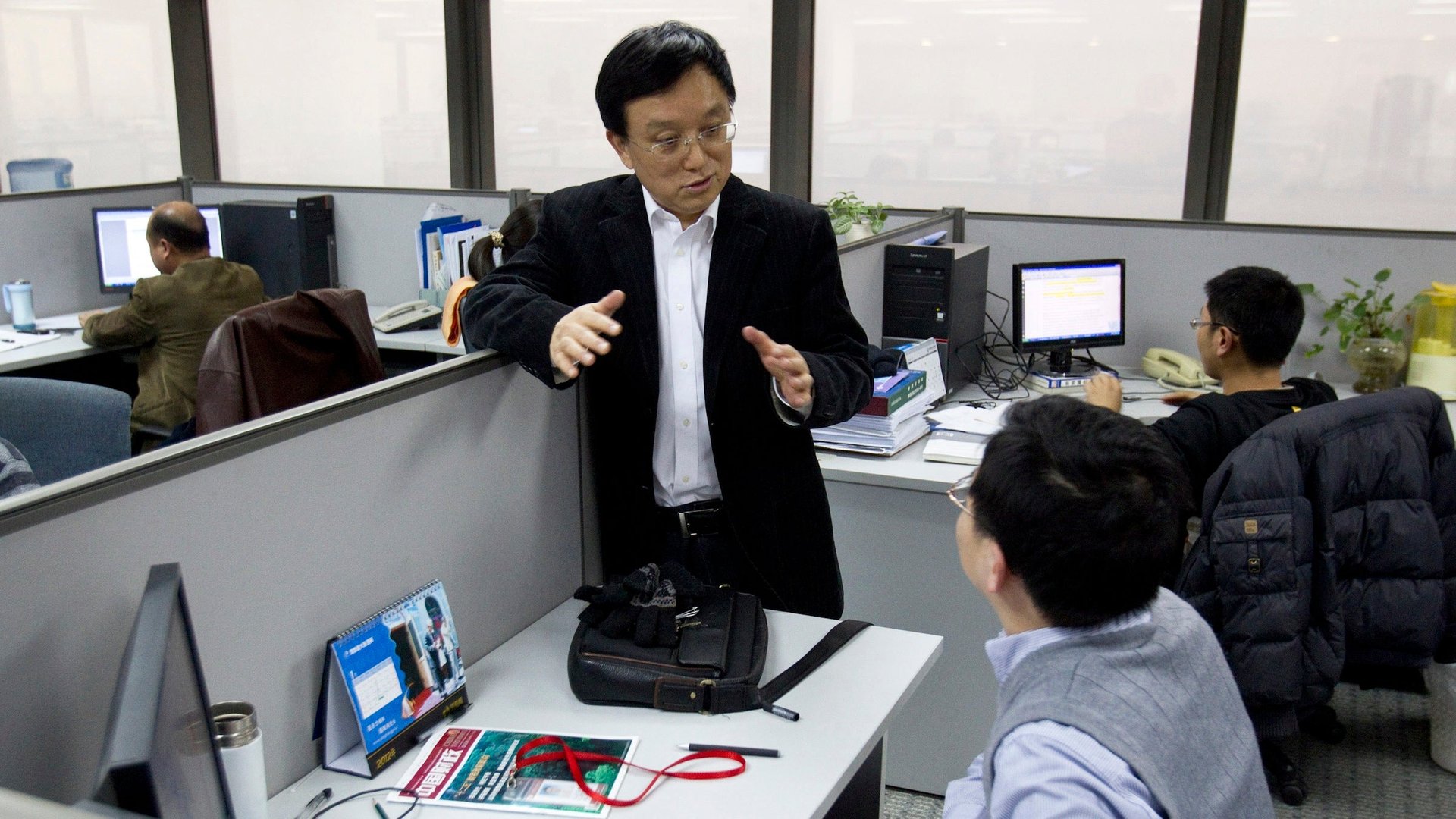A little-known Chinese rating agency may be biased, lucky, or both—but it also may be right
Nobody pays much attention to the Chinese credit rating agency Dagong, and its downgrade of Japan’s sovereign debt on Monday was resolutely ignored by investors who drove Japanese bond futures to a record high. But the fact that Dagong has made a series of good calls in the past three years—downgrading debt from the United States, Britain, and France ahead of Standard & Poor’s and Moody’s—means it shouldn’t necessarily be overlooked.


Nobody pays much attention to the Chinese credit rating agency Dagong, and its downgrade of Japan’s sovereign debt on Monday was resolutely ignored by investors who drove Japanese bond futures to a record high. But the fact that Dagong has made a series of good calls in the past three years—downgrading debt from the United States, Britain, and France ahead of Standard & Poor’s and Moody’s—means it shouldn’t necessarily be overlooked.
Dagong claims it has a better ability to judge creditworthiness than its Western rivals, who it says are “political and idelogical” and lack objectivity. That criticism cuts both ways: CEO Guan Jianzhong is a Communist Party member with close ties to the Beijing government, and Dagong generated chuckles in 2011 when it rated China’s highly indebted Ministry of Railways more creditworthy than the Chinese government itself.
With tensions between China and Japan running high over uninhabited islands in the East China Sea, Dagong cut Japan’s foreign currency debt to “A+”, which is within Dagong’s third highest band of perceived creditworthiness. Dagong said that Abe’s plans to boost Japans’ fortunes via depressing the yen and hugely increasing public spending would send its economy into a “prolonged slump.” Promoting a weak currency and GDP-boosting public spending has, of course, been China’s policy for years; Dagong gives China’s sovereign debt its second-highest possible rating.
But Dagong’s analysis on Japan may still be on the money. ”In some ways, the downgrade probably does make some sense,” says Joyce Poon, Asia research director at Hong Kong consultancy Gavekal. She argues Japan’s economy will eventually suffer if government spending plays too large a role in the economy, depriving entrepreneurial private businesses of opportunities and access to bank credit. Critics of Abenomics also argue that Japan’s new leader can only give the economy a short term boost by depressing the currency and spending big on new public works, the policy is fairly risky. Abe wants to end Japan’s persistent deflation. But as Japan’s debt is already at a very high 236% of GDP, a return to inflation will lower the government’s ability to service its debt payments.
Dagong has a history of making big calls that top credit ratings agencies eventually follow. The ratings agency leapt onto the world stage in November 2010, when it downgraded the US, citing the Federal Reserve’s quantitative easing policies, and cutting yet again just days before Standard & Poor’s cut America’s AAA credit rating. Dagong also downgraded Britain and France in 2011, with Moody’s and S&P eventually following suit.
Despite those calls, “there is some cynicism among fund managers about the reliability of a local Chinese ratings agency,” the global head of institutional investor coverage at a British bank said diplomatically. “Dagong will have to spend a few more years proving itself before it can move markets.”